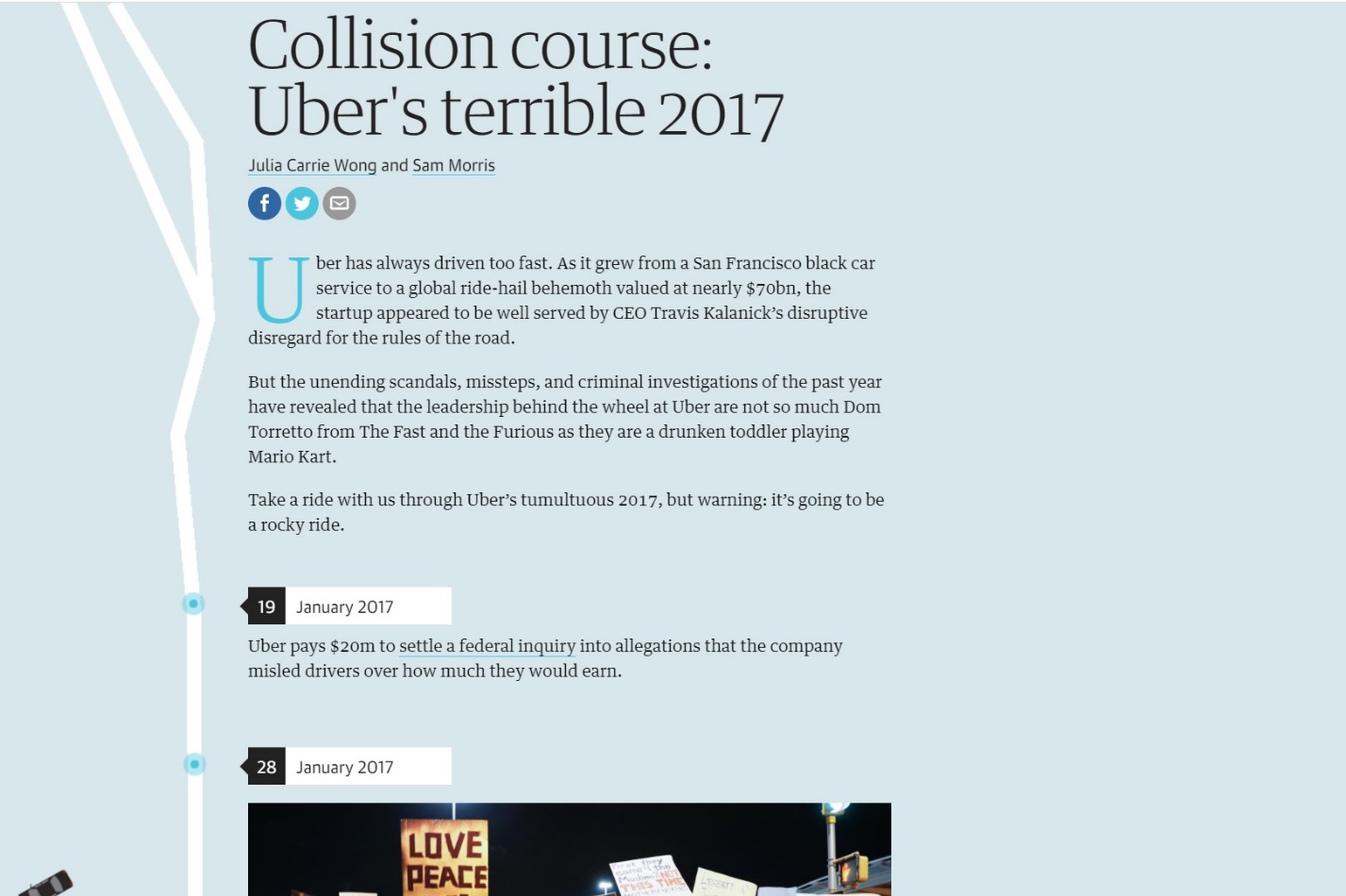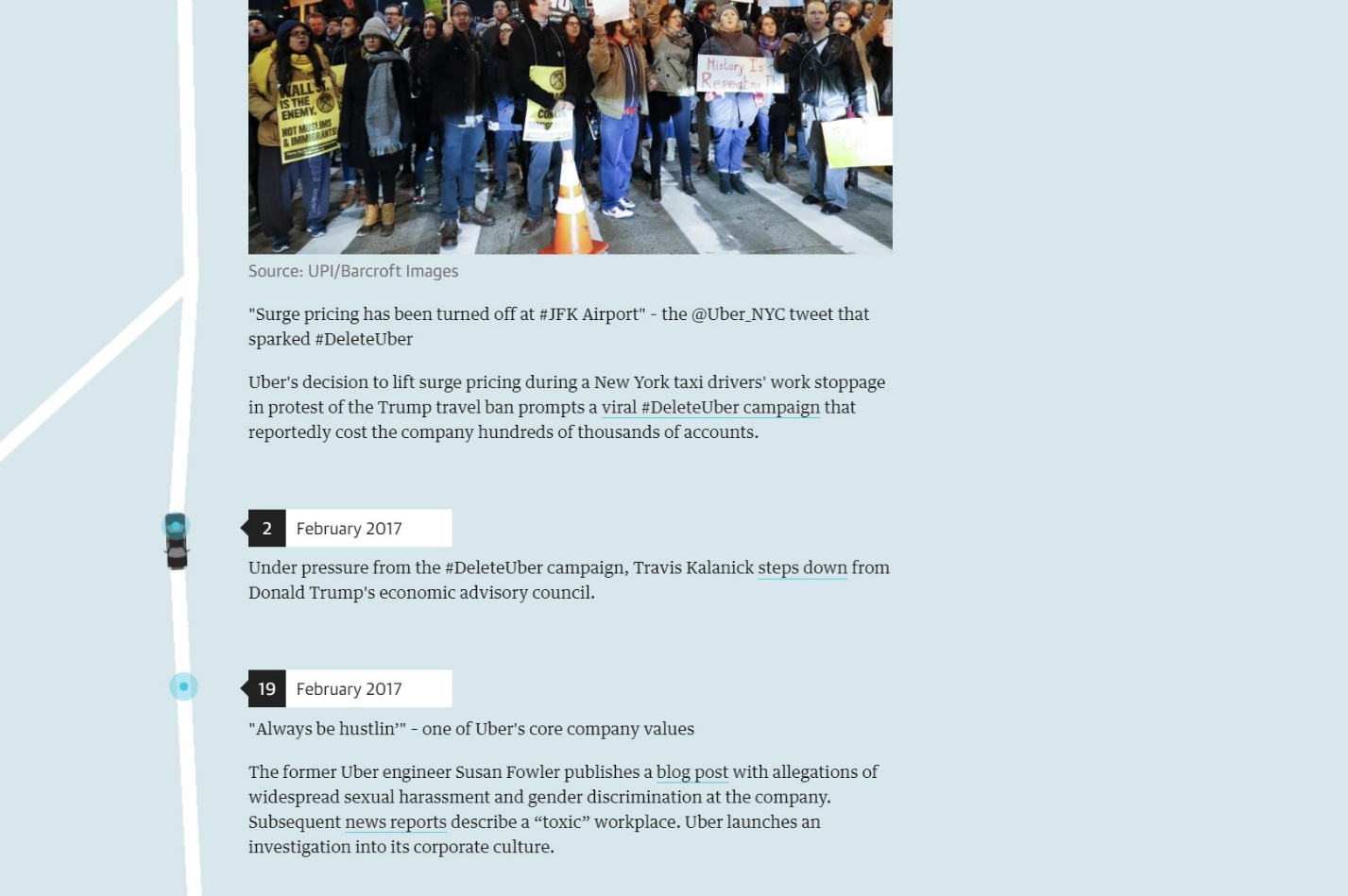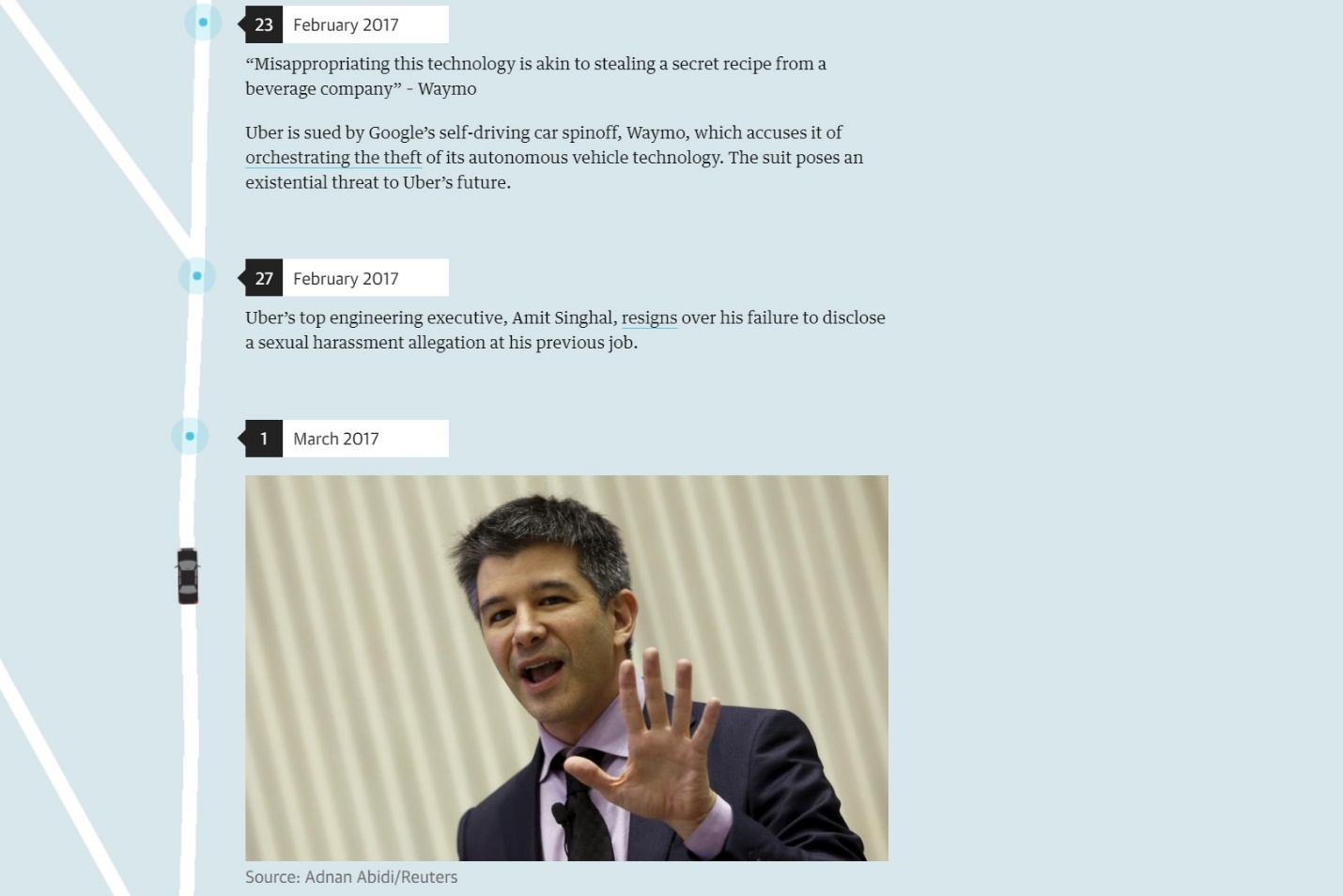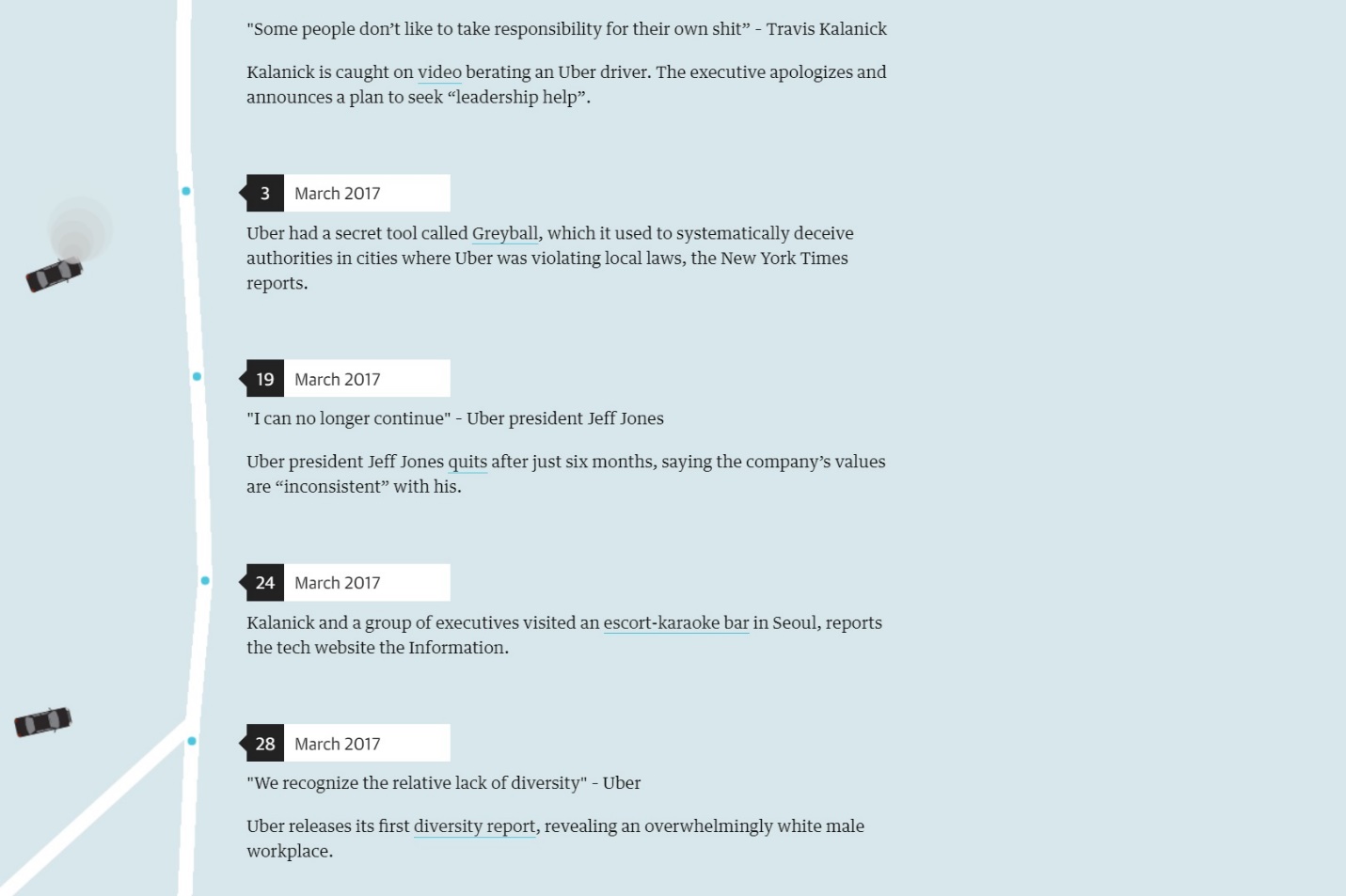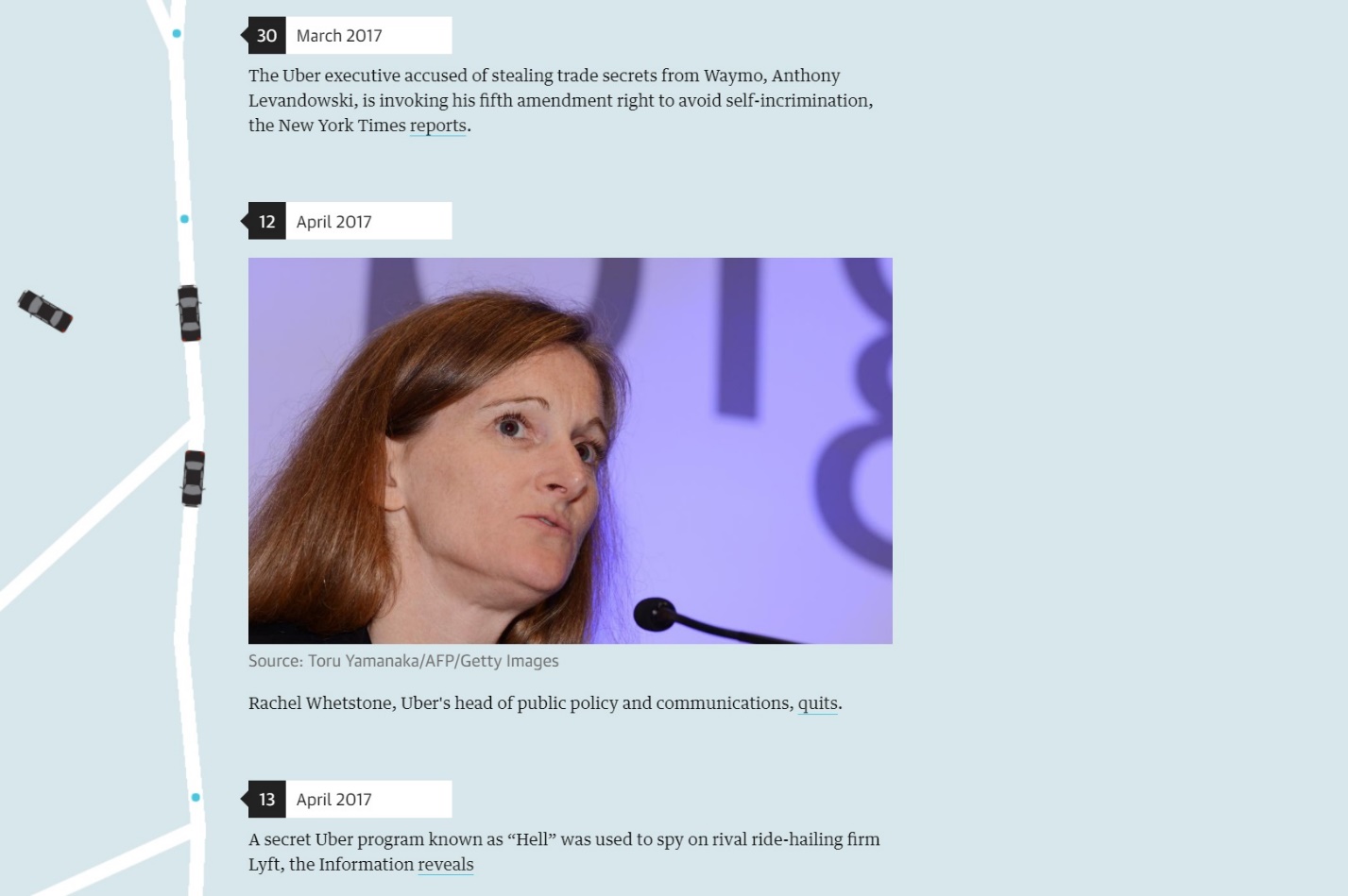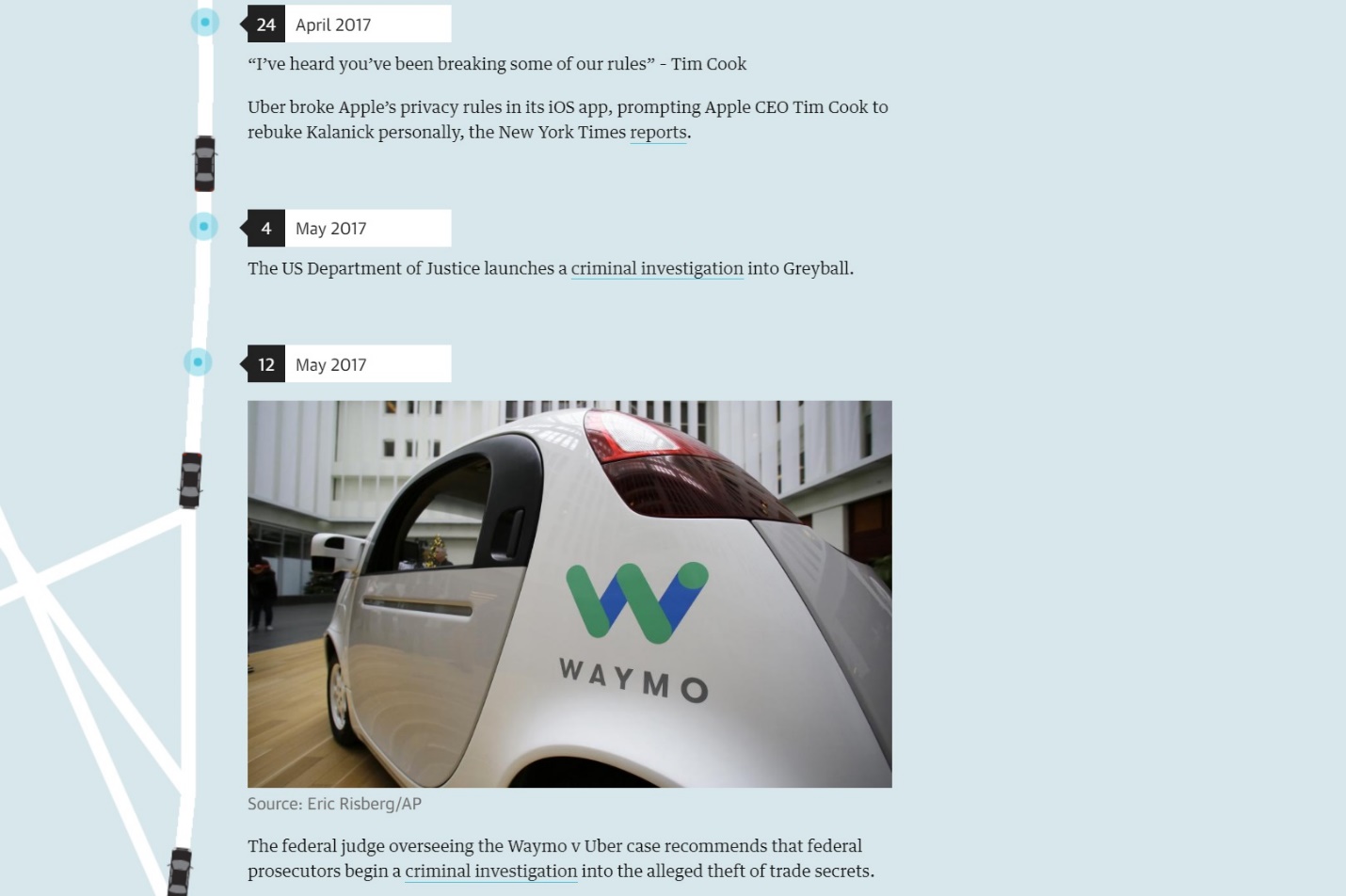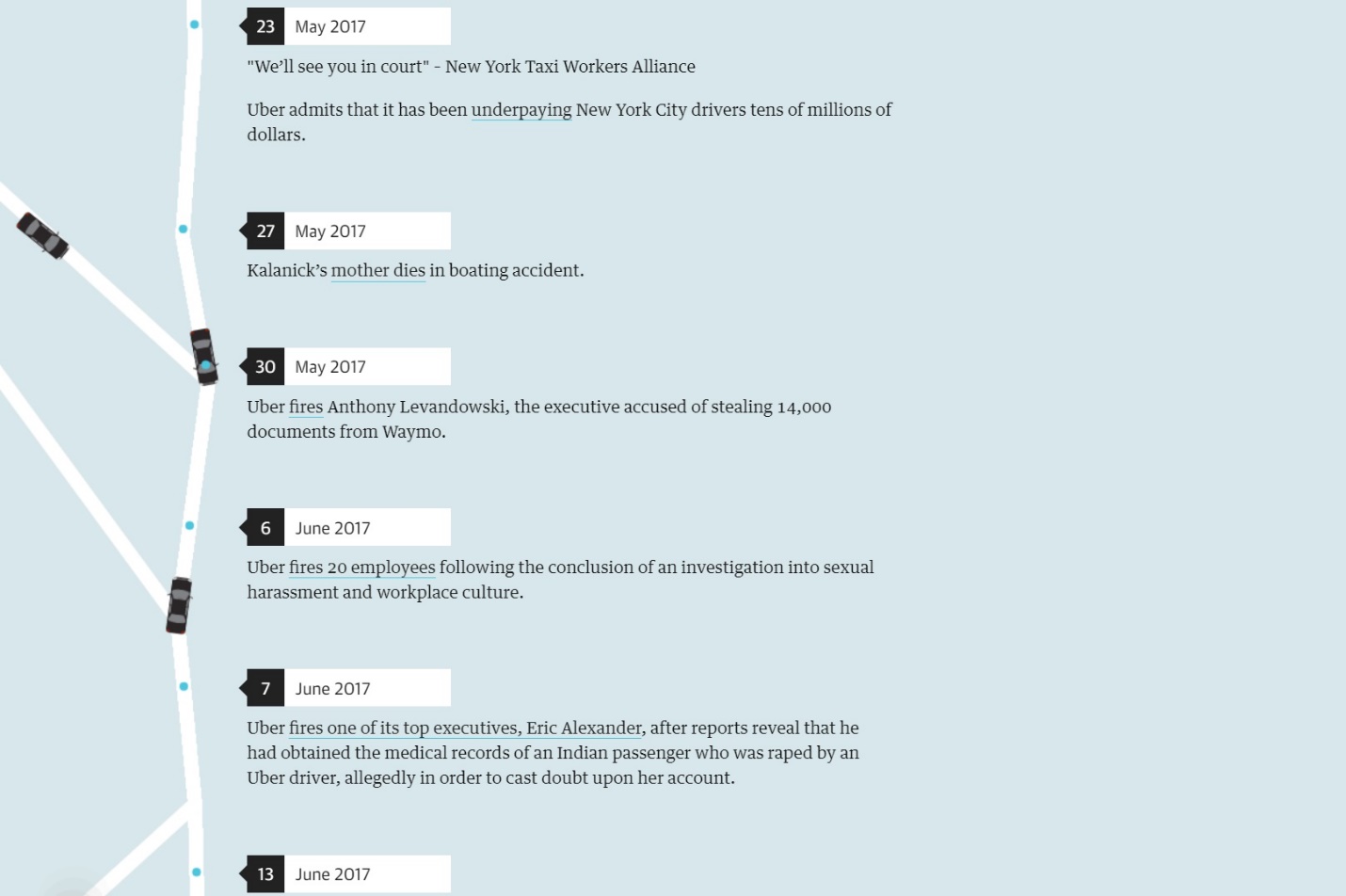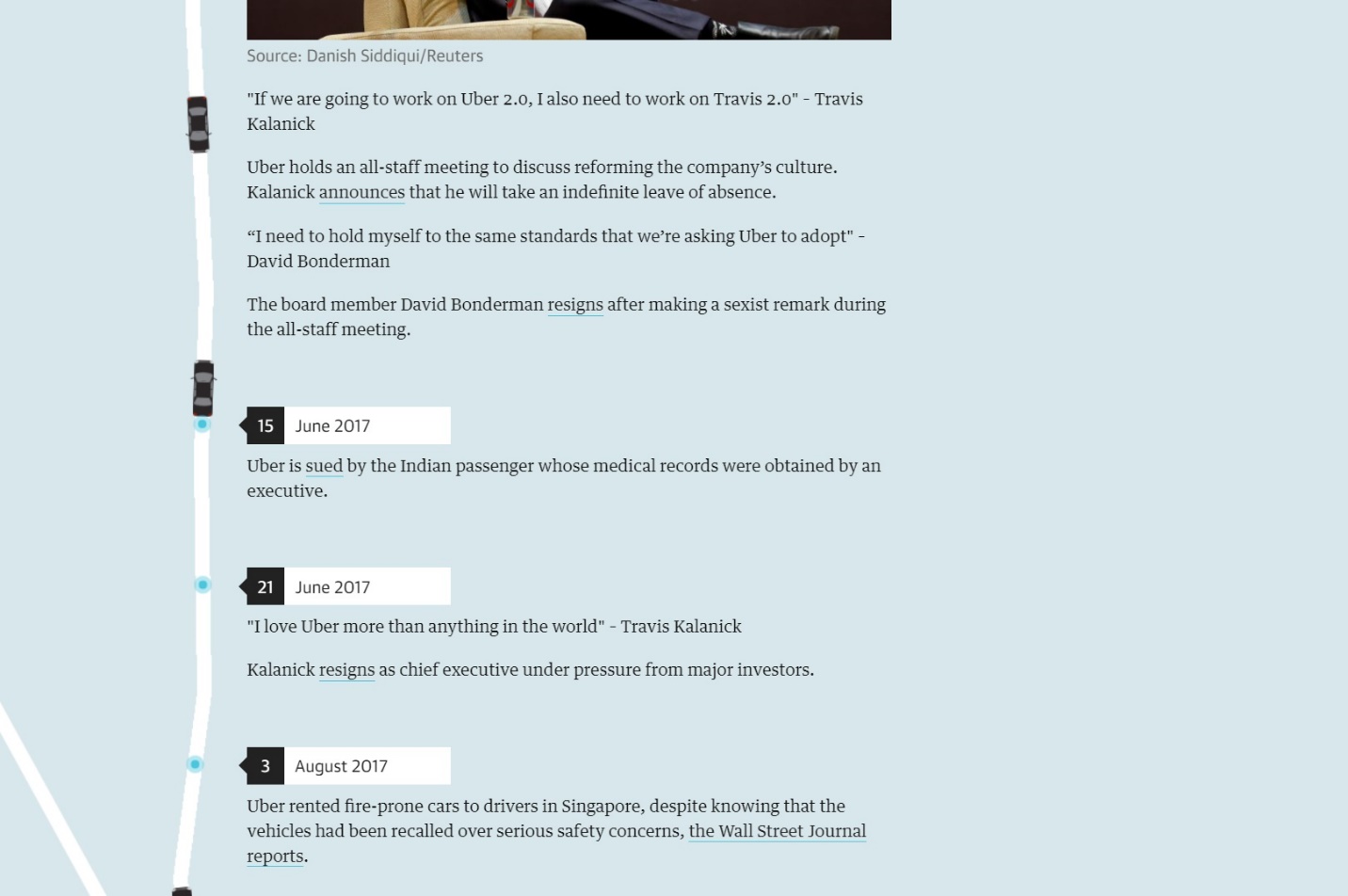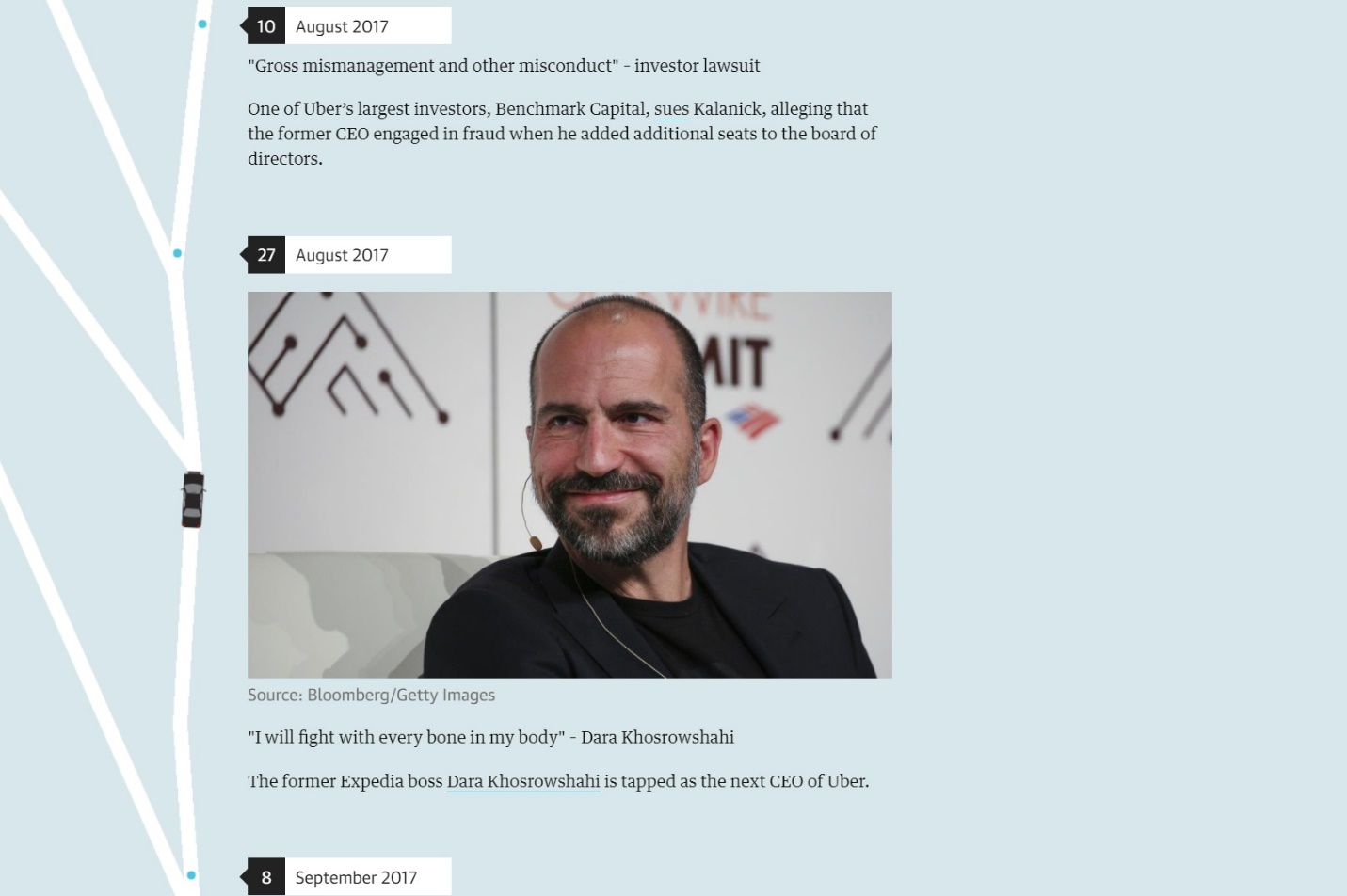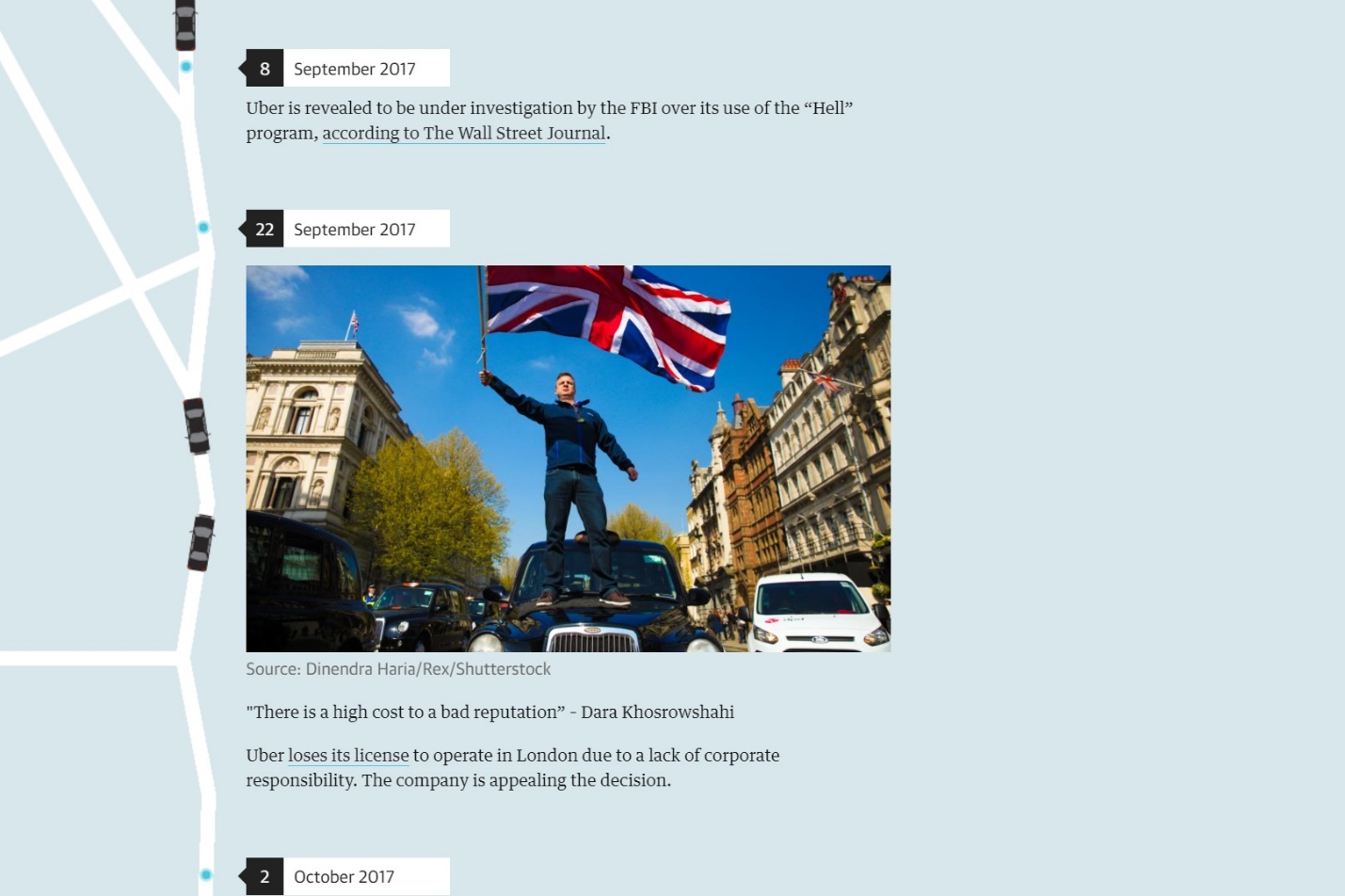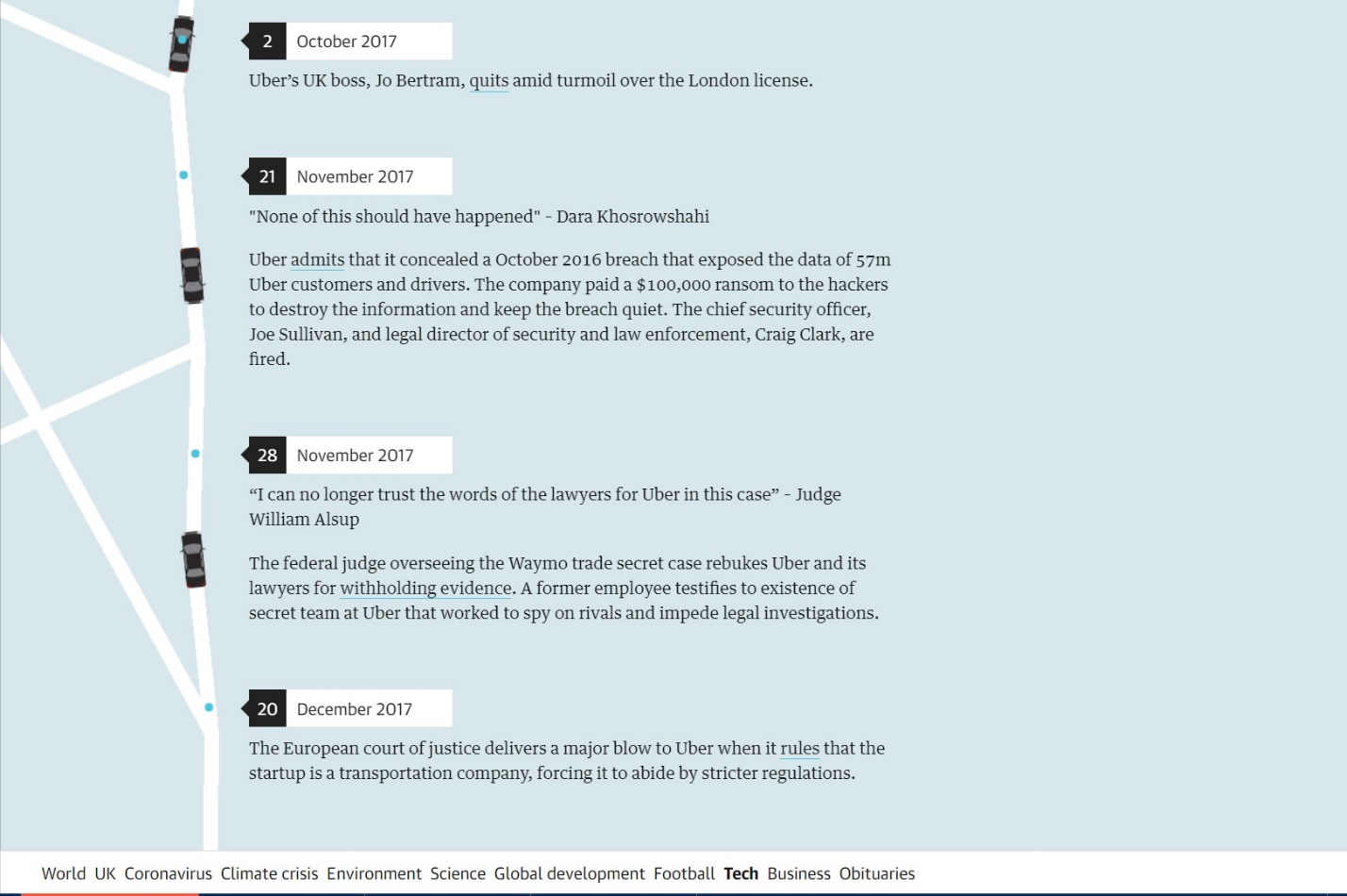Journalists of the British newspaper “The Guardian” conducted a brief study of the events that happened to the international company “Uber” in 2017. Writers skillfully and ironically “turned inside out” the real truth that happens in the company – endless quarrels, scandals and criminal investigations (Carrie and Morris, 2017). Chiefs and employees of “Uber” have repeatedly shown and demonstrated such unlawful violations as negligence towards customers and invasion of someone else’s privacy (Carrie and Morris, 2017). In addition, the firm itself even saved on its employees and misled about salary received.
Ethical Responsibilities of the Organization
“Uber” is an international company that provides taxi services to customers through a mobile application, exclusively in the Internet space. The primary ethical responsibilities of the organization doing business in this industry include providing mutually beneficial conditions to employees, making a quick and safe trip for customers, and data integrity when using the “Uber” app. The company’s responsibilities are to ensure safety and mutual respect; customers feel safe and comfortable, and employees understand this is a proven and recommended workplace (Mudrić, 2020, pp. 15-55).
According to the new conditions, “Uber” is responsible for planning and organizing a trip with the participation of independent transport service providers (Malos, Lester, and Virick, 2018, pp. 239–251). Consequently, other companies providing these services are responsible for transportation services. Summing up the study results of the company’s ethical responsibilities, the following paragraph examines Uber from the point of view of compliance with the ten principles of the United Nations Global Compact.
The principles of the UN Global Compact, based on fundamental United Nations conventions and declarations, are recognized and enshrined in numerous intergovernmental resolutions and final documents. The UN Global Compact is an initiative of the United Nations to stimulate the social responsibility of business and report on the conduct of activities (Gomes, 2017, pp. 93-115). Based on the concepts of the Global Compact, “Uber” is responsible for human rights, labor relations, environmental protection, and the fight against corruption (Orzes, 2020). Adherence to these principles is an indicator of the company’s responsibility and integrity, a good reputation, and an element of business sustainability.
Principles of the UN Global Compact Breached by the Company
Considering the incidents cited in the newspaper article “Collision course: Uber’s terrible 2017”, “Uber” violates the following principles of the UN Global Compact. For instance, the firm resorted to forms of corruption, repeatedly violated the rights of people and did not comply with the corporate culture, discriminated against employees about work duties (Carrie and Morris, 2017). For a more precise and understandable idea of the circumstances, it is necessary to consider a specific example based on discrimination and sexual harassment within the company. According to research, “Uber” has long practiced toxic behavior on the part of management, intimidation, and sexual harassment (Becker, 2020, pp. 1-27).
Moreover, the firm lost not only several executives after the general accusations of violations of corporate ethics but also the trust of potential customers and employees (Griffith, van Esch, and Trittenbach, 2018, pp. 111-118). Therefore, the company unconditionally and without the slightest reasons violates the 6th principle of the UN Global Compact regulating Labor Relations.
Business Ethics and Corporate Social Responsibility Theory about This Case
Referring to Ethics theory, a mandatory rule of business interaction is respect, commitment, loyalty to the word, respect for confidential secrets. These are organizational standards, a set of social values and norms that regulate the actions and behavior of people in an organization (Poff, 2020). Many “Uber” customers were dissatisfied with the surge pricing, security violations, as well as illegal actions of operators and drivers, which are already violations of the company’s business ethics.
Corporate social responsibility is a concept according to which organizations should consider the interests of society, assuming responsibility for the impact of their activities on various stakeholders. The need for corporate social responsibility is manifested for companies to provide a resource basis for life as a socio-economic system – now and in the future. One of the aspects due to which Uber is undergoing critical changes is corporate social responsibility in business. In fact, the “taxi call leader” even lost his license to work in London. The regulatory body, Transport for London, said that Uber’s approach demonstrates a lack of responsibility regarding critical points that can have consequences for the safety of society (Noguellou, 2018). Uber has been repeatedly accused of various problems related to CSR, such as failure to report serious criminal offenses, hiring unprofessional drivers, and improper verification of employee’ sdocuments, as well as privacy problems.
Two Recommendations for the Organization
For “Uber” to expand its globally-oriented business practices in the future, it is necessary to follow two main recommendations. Firstly, the company should focus on standardization and analogy of products and services in each market and expand the potential where such an opportunity manifests itself (Deresky, 2017). For example, “Ford Motor Company” can boast of its achievements and successes in implementing this strategy. “Ford” adheres to the “global electrification strategy” in the business practice and sure that the use and consumption of any product sold are the same all over the world (Bright et al., 2019). Therefore, based on this concept, the company produces transport vehicles, starting from compact to larger cars, to meet the needs of each client. Thus, “Uber” will work in every country, city, and region so that everyone can make a trip through the app with just a couple of “clicks.”
The app should be simple and supported on almost all smartphones and not take up a lot of memory, and drivers must have respectful attitude to their passengers. Consequently, it is essential to introduce new technologies, overcome trade barriers, implement global projects and properly allocate resources.
Secondly, as practice shows, the implementation of the global strategy is associated with significant risks. Thus, considering the company’s entry into the world market, companies should include special business models for adding value and benefits for customers (Tallman, Luo, and Buckley, 2017, 517-535). For instance, “McDonald’s” uses a creative approach and takes into account the “national tastes and preferences” of customers. Known for its meat products, “McDonald’s” offers its customers from India, preferably vegetable burgers and, in rare cases, chicken and fish sandwiches (Bright et al., 2019). Hence, compliance with the key and distinctive characteristics of the services and products offered by “Uber” will help stay afloat among competitors, minimize risks and losses, and increase profits (Tallman, Luo, and Buckley, 2017, 517-535).
It is necessary to adhere to fresh and new views on the situations, a vision of a whole picture, and forecasting the consequences of implementing specific measures. Indeed, the company may offer its customers a convenient service, a safe and fast trip, or other unique approach.
Reference List
Becker, P. A. (2020) “Work alienation and disengagement: sexual harassment and Uber”, in Dhiman, S. (ed.) The Palgrave Handbook of Workplace Well-Being. Los Angeles: Palgrave Macmillan, pp. 1-27. Web.
Bright, D. S., et al. (2019) Principles of Management. Houston: OpenStax.
Carrie Wong, J. and Morris, S. (2017) “Collision course: Uber’s terrible 2017”, The Guardian. Web.
Deresky H. (2017) International management – managing across borders & cultures, text & cases. 9th edn. London: Pearson Education.
Gomes, E., et al. (2017) “Corporate social responsibility through the Global Compact: between business and society”, BRICS Law Journal, 4(4), pp. 93-115. Web.
Griffith, D. A., van Esch, P., and Trittenbach, M. (2018) “Investigating the mediating effect of Uber’s sexual harassment case on its brand: Does it matter?, Journal of Retailing and Consumer Services, 43, pp. 111-118. Web.
Malos, S., Lester, G.V. & Virick, M. (2018) “Uber drivers and employment status in the gig economy: should corporate social responsibility tip the scales?”, Employee Responsibilities and Rights Journal, 30, pp. 239–251. Web.
Mudrić, M. (2020) “Nature of Uber services”, in Marin, J., Petrović, S., Mudrić, M. and Lisičar, H. (eds.) Uber—brave new service or unfair competition. Zagreb: Springer, pp. 15-55. Web.
Noguellou, R. (2018) Uber & Taxis. Comparative Law Studies. Bruxelles: Bruylant.
Orzes, G., et al. (2020) “The impact of the United Nations global compact on firm performance: a longitudinal analysis”, International Journal of Production Economics, 227, 107664. Web.
Poff, D. C. (2020). “Business Ethics Research and Research Ethics in Business Research”, in Iphofen, R. (ed.) Handbook of Research Ethics and Scientific Integrity. Chatelaillon Plage: Springer, pp. 999-1011. Web.
Tallman, S., Luo, Y., and Buckley, P. J. (2017) “Business models in global competition”, Global Strategy Journal, 8(4), pp. 517-535. Web.
Appendix
